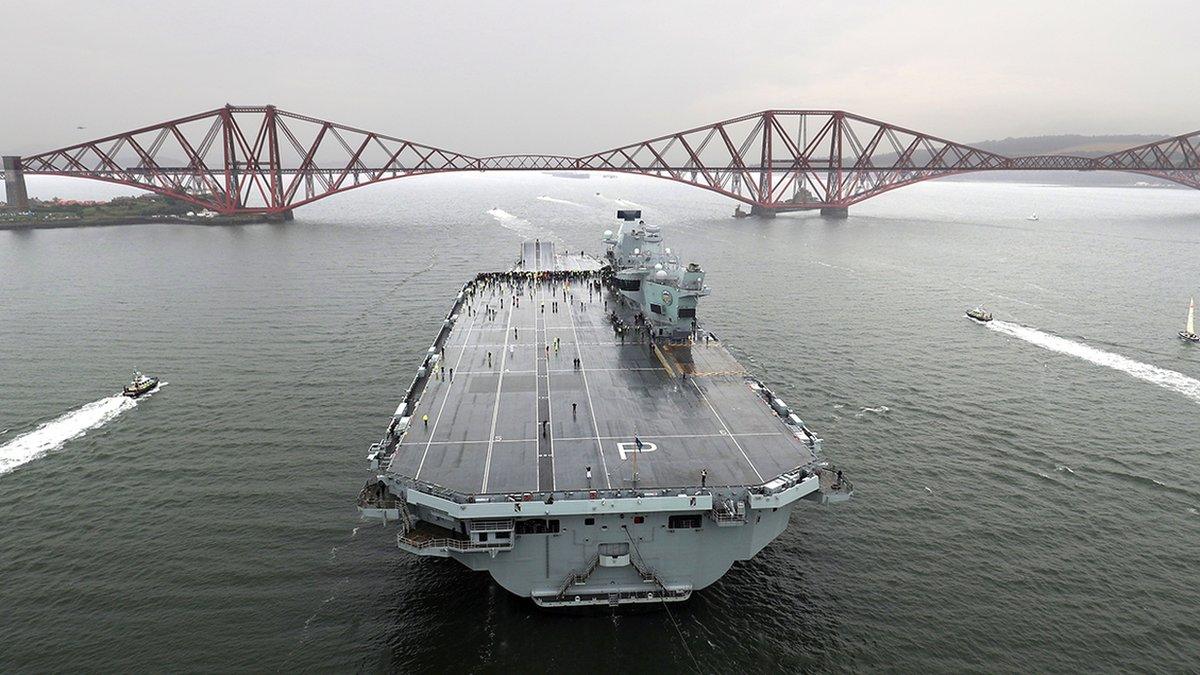Could Labour plans mean a sea change for shipbuilding in Scotland?
- Published
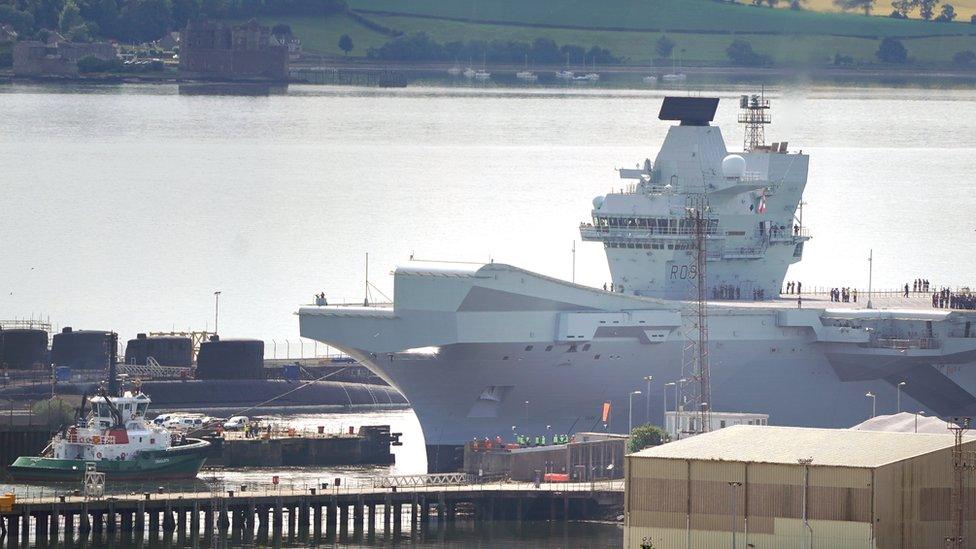
Frontline warships like the aircraft carrier HMS Prince of Wales are built at UK yards.
More ships would be built in Britain instead of overseas under a Labour government, according to the shadow chancellor Rachel Reeves.
She was speaking on a visit to Babcock's Rosyth shipyard in Fife, where Type 31 frigates are built.
She said the threshold for placing work overseas needed to change in order to protect important strategic industries.
Warships are currently always built in the UK but large fleet support vessels can be built in foreign yards.
But what would Labour's policy mean for Scotland's shipbuilding industry?
A lot of this comes down to which economic model the political parties favour.
The Conservative government tends towards a competitive procurement process, which goes for the lowest cost bidder, no matter where they are bidding from.
The Tories have long argued that this current system delivers better value for public money, with no impact on the operational effectiveness of vessels.
A move towards a more protectionist approach of the kind being suggested by Ms Reeves could create more jobs here.
In her speech to the Labour conference in October, Rachel Reeves declared "globalisation as we once knew it, is dead".
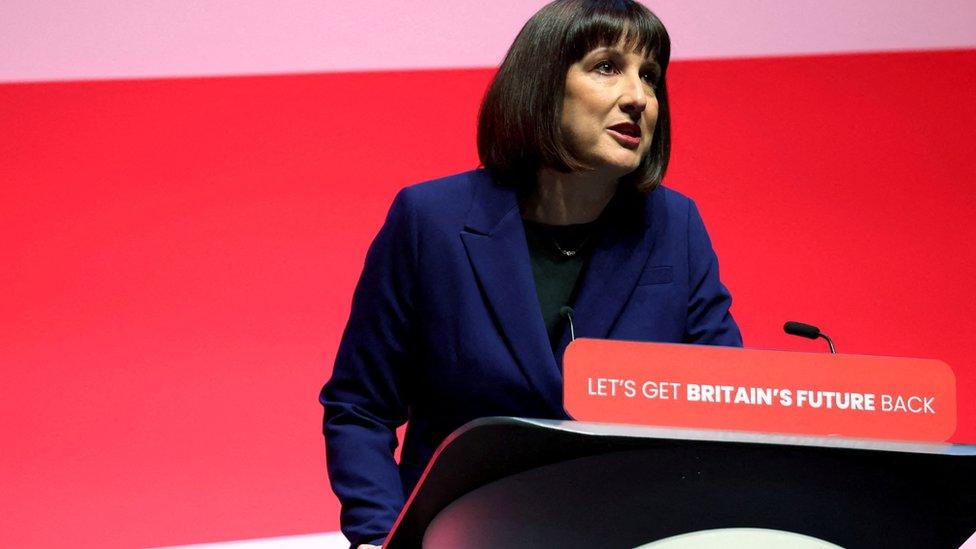
Rachel Reeves delivers a speech at the Labour Conference in Liverpool
Her new strategy appears to reflect that view, as it favours awarding contracts to UK firms instead of overseas rivals.
She also told the BBC she would like to see contracts for ferry construction and renewable energy go to British firms, where possible.
Of course that can mean a greater cost to the taxpayer. After all, we know that yards in other parts of the world can have significantly lower costs than our unionised yards where wages and costs are relatively high.
Ferguson shipyard - where the two massively overdue and over budget CalMac ferries are currently being built - reminds us of that.
The question then becomes what is more important? What is in the greater interests of the yards, the taxpayers and - of course - the politicians?
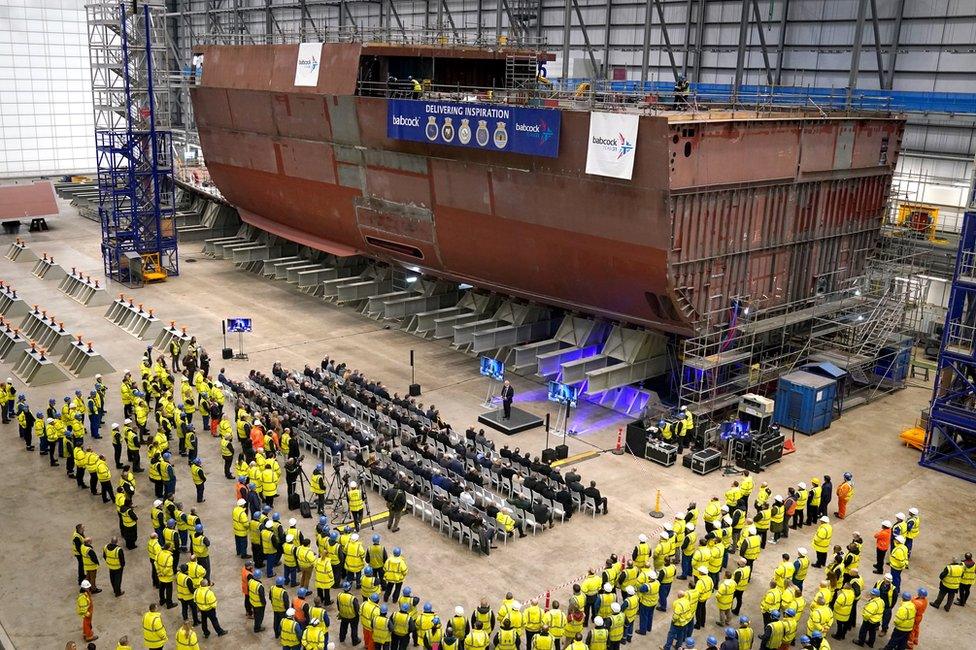
The Babcock yard at Rosyth is currently working on Type 31 frigates
Among the big contracts recently awarded is one for three new Fleet Solid Support ships.
These 40,000 tonne vessels carry munitions and supplies for the Royal Fleet Auxiliary. The £1.6bn contract was won by a consortium led by Spanish firm Navantia joined by Harland & Wolff in Belfast and design firm BMT.
While it is claimed 60% of the work will be done in the UK, the rear sections of the ships will be built at Cadiz in Spain.
A rival "Team UK" consortium - made up of Babcock with its dockyard at Rosyth, BAE Systems which has two yards on the Clyde, and Cammell Laird in Merseyside - missed out on the work.
Ms Reeves said: "We would have a higher threshold for outsourcing anything overseas, especially on defence.
"The government already has powers to keep defence work in the UK. I want to see those powers properly used so we can create more good jobs, paying decent wages, as we have here in Rosyth."
Ms Reeves argues that outsourcing work to foreign shipyards costs the UK more in the long-term.
"I think you have to take into account the strategic national significance of projects. We need to keep ourselves safe and that means having the ability to do things here at home," she said.
"The government always looks at the short-term cost rather than the long-term benefit, at a cost to good jobs paying decent wages here in Scotland and across the United Kingdom. That ends up costing us more."
'Shipbuilding powerhouse'
Of course, the current government begs to differ.
A source close to Defence Secretary Grant Shapps told me: "Labour has historically underinvested in defence. It's laughable that they are claiming they support investment in our defence industry.
"The Conservative Party stands behind our armed service personnel and the defence sector. Labour's words are meaningless."
Meanwhile a spokesperson for the Ministry of Defence said there already is a huge commitment to UK shipyards, pointing to 44,600 jobs it supported in 2021.
They added: "We are fully committed to the UK being a shipbuilding powerhouse, with our multi-billion-pound pipeline of warships and submarines supporting thousands of jobs in Scotland and across the UK for decades to come.
"We have announced a further £4.2bn investment in a further five Type 26 frigates to be built by BAE Systems, taking the total to eight Type 26 Frigates in total. This will secure shipbuilding on the Clyde well into the 2030s."
The GMB Union, which represents many shipyard workers, welcomes Labour's proposed approach.
General Secretary Gary Smith said there are "major issues" with how the Ministry of Defence procures work and there should be far less focus on competition for these kinds of contracts.
"For too long, the UK has been exporting high-quality jobs halfway around the world, depriving communities here of opportunities. That's meant we've hollowed out large parts of our manufacturing base," he said.
"There's potential to create more quality jobs in the UK, more apprenticeships and more opportunity for working class kids."
Ship building remains important to Scotland. The BAE yard on the Clyde is very busy with Royal Navy orders. The Rosyth yard has harboured, built and re-fitted warships for more than a century.
These are still big questions ahead of a UK election and in the context of the debate over the future of the Union.
Related topics
- Published16 October 2023
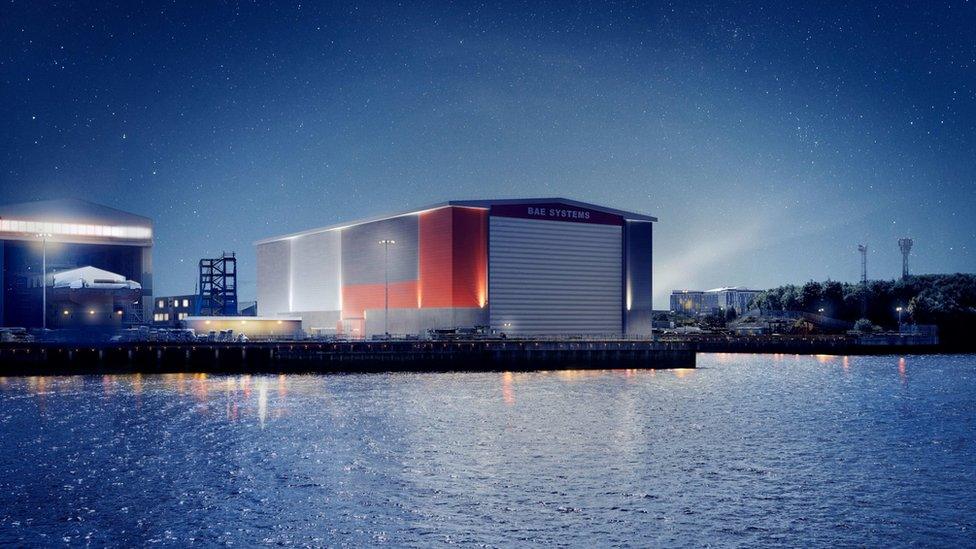
- Published22 September 2019
